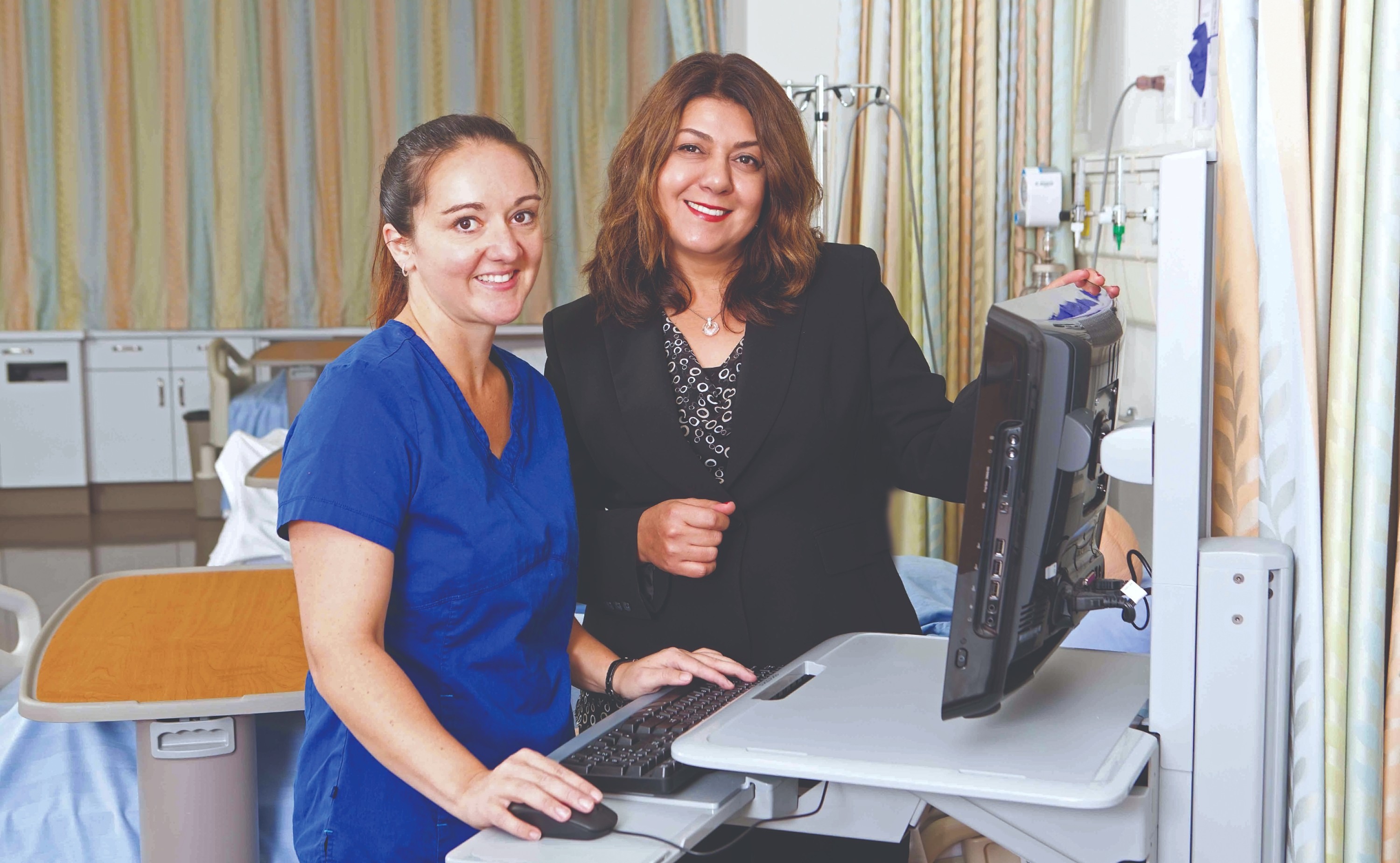Canada’s nursing school graduates are not as ready as they should be for the digital transformation happening in health care, according to a University of Alberta researcher.
Nurses need better education to keep up with the fast pace of innovation — from robots at the bedside to virtual care and virtual reality treatments to electronic health records — not to mention research discoveries driven by artificial intelligence.
“It’s really much more than basic training to use digital health technologies, which are getting increasingly complex,” says Manal Kleib, associate professor in the Faculty of Nursing. “Nursing grads are tech savvy, yet they don’t see the full picture of what this digital transformation means to patients.”
In her most recently published study, Kleib surveyed more than 300 fourth-year nursing students from Alberta. Two dozen were interviewed in depth. While most reported learning some digital skills during their practicums — for example, how to chart using computer health records systems — the broad range of technologies and inconsistent work experiences meant they were inadequately prepared overall.
“Nursing education needs to highlight the important role of nurses in collecting data and then making sense of that data to provide even better care,” Kleib says.“This is a critical core competency that nurses must have.”
“This will also increase their ability to contribute to the design and evaluation of the technologies they use and, ultimately, to better help their patients,” Kleib says.
Improvements needed nationwide
Kleib began her own nursing career in a critical care unit where technology, such as automated sensors, is ubiquitous. After working in Jordan, Dubai and the United States, she did an MBA to learn more about digital health-care technology before coming to the U of A to do her PhD. Kleib has worked with Alberta Health Services as a health informatics consultant and also advised the Canadian Association of Schools of Nursing. She is now leading a research program on the digital health readiness of the nursing workforce and is chair of a digital nursing research group within the U of A’s Faculty of Nursing.
Kleib is one of the organizers of the Canadian Association of Schools of Nursing Digital Health Forum to be held in November, and she will present on the topic of enhancing nursing capacity to lead the digital health transformation.
Kleib hopes to develop nationwide curriculum changes based on a larger joint study she is leading with McGill University researchers to learn more about the training needs of senior level students on emerging technologies such as artificial intelligence. The team will interview recent graduates and nursing managers in clinical settings.
“We want to bring to light that this is a national-level issue. It’s not about one or another university in Canada. It is across the board,” Kleib says.
Kleib’s goal is to improve patient care by ensuring nurses are well trained at school and then have access to continuing education once they are in practice. “Every health-care setting is now a digital setting,” she says.
Kleib’s most recent paper was funded by an educational research award from the Western/Northwestern Region Canadian Association of Schools of Nursing. Her new joint study is funded by a Social Sciences and Humanities Research Council Insight Development Grant. Kleib is a member of AI4Society and the Women and Children’s Health Research Institute. She has also been named to the 150 Nurses for Canada by the Canadian Nurses Association for her work on digital health.
